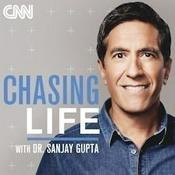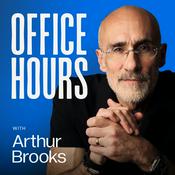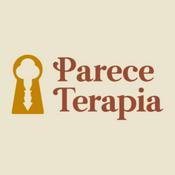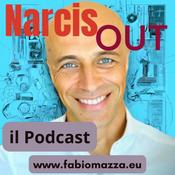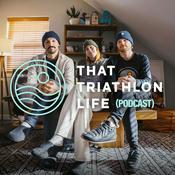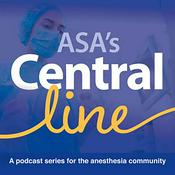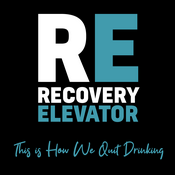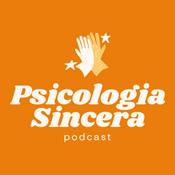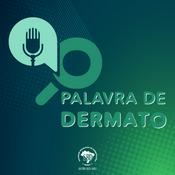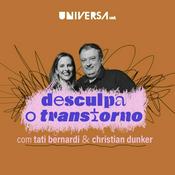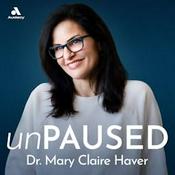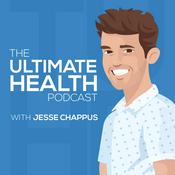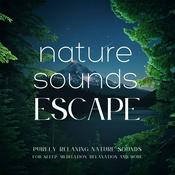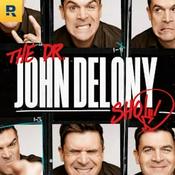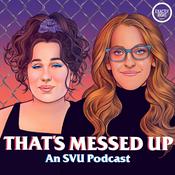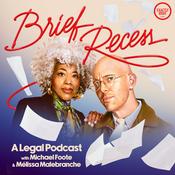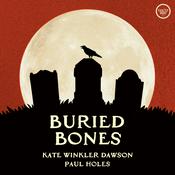273 episódios
- Poop is an incredibly valuable and massively underutilized resource. However, most of us don’t see it that way because of our evolutionarily ingrained disgust towards poop. Flush toilets and intricate sewer systems have revolutionized health and hygiene by whisking our poop far away where we don’t have to think about it. But that poop has gotta go somewhere, and eventually, not thinking about it isn’t going to be an option. Similarly, not thinking about our individual poop is asking for disaster, since what we produce can reveal a great deal about our gut and overall health. In this episode, we explore the problems that poop can cause on both the individual and population level. From constipation to fiber, and the Great Stink to communal poop sponges, we’re continuing our journey into the curiously fascinating world of poop.
Support this podcast by shopping our latest sponsor deals and promotions at this link: https://bit.ly/3WwtIAu
See omnystudio.com/listener for privacy information. - It might be stinky and it might be unpleasant to behold, but we all do it. For many of us, our poop is out of sight, out of mind once we flush it away. But for the next hour and fifteen minutes or so, we’re going to bring it back into mind as we delve into the rich world of poop. This episode, the first of a two-part miniseries on poop, features a wide cast of characters all with some role in the production or management of poo, like our intestinal tract with its sphincters and microbiota, dung beetles that perform the duties so crucial for ecosystem function, and the sperm whale that produces a revered substance used in perfumes. We’re going behind the scenes to understand how the sausage really gets made (in a manner of speaking) and why we need a big perspective shift to stop seeing poop as waste and start seeing it as a resource.
Correction: EW says that elephants poop 15 pounds a day, but in reality it’s more like 10x that - 150-200 pounds! Sorry for the mistake - we noticed it while listening through.
Support this podcast by shopping our latest sponsor deals and promotions at this link: https://bit.ly/3WwtIAu
See omnystudio.com/listener for privacy information. - For much of the world, refrigeration is such a commonplace technology that we rarely stop to wonder at the many ways it has transformed our lives. From the foods we grow to where we grow them, from how they taste to what we eat, refrigeration has dramatically - and quite recently - changed our relationship to food, our health, and the environment. As Nicola Twilley describes in Frostbite: How Refrigeration Changed our Food, Our Planet, and Ourselves, progress, as it so often does, comes at a cost. Twilley, who also cohosts the award-winning food podcast Gastropod, joins us in this week’s TPWKY book club episode to discuss the surprising history and tenuous future of refrigeration. You’ll never look at your fridge the same way again.
Support this podcast by shopping our latest sponsor deals and promotions at this link: https://bit.ly/3WwtIAu
See omnystudio.com/listener for privacy information. - Now that we know just how critical sleep is, we’re all making sure we get the amount we need, right? Unfortunately no. One-third to one-half of Americans are not getting enough sleep, according to public health guidelines. Why is that? Hypotheses abound, but many point the finger of blame at different aspects of modern society such as screen time, artificial light, a sedentary lifestyle. These narratives suggest that sleep in industrialized societies today is not just different but worse than in centuries past. Is that the truth? How did humans sleep in yesteryear, and what can that tell us about sleep today? In the conclusion to our sleep two-parter, we explore the many ways that humans sleep and the wide array of consequences when we don’t get enough (or too much) of it.
Support this podcast by shopping our latest sponsor deals and promotions at this link: https://bit.ly/3WwtIAu
See omnystudio.com/listener for privacy information. - Sleep is a universal experience. It’s not just the lion that sleeps tonight - it’s also the butterfly, the chicken, the jellyfish, the dog, the snake, the worm, and of course the human. What is this widespread physiological process whose spell we are all under? What purpose (or purposes) does it serve? Why do we sleep the way we do? These are just some of the questions we’re going to get into in this week’s episode, the first half of our two-parter on sleep. We break down the different components of sleep in humans before diving deep into how animals sleep and what drives the different patterns we see. Night owl or daybird? Light sleeper or deep slumberer? Frequent naps or one big chunk? One eye open or both eyes closed? Tune in as we unravel some of the mysteries of sleep.
Support this podcast by shopping our latest sponsor deals and promotions at this link: https://bit.ly/3WwtIAu
See omnystudio.com/listener for privacy information.
Mais podcasts de Saúde e fitness
Podcasts em tendência em Saúde e fitness
Sobre This Podcast Will Kill You
This podcast might not actually kill you, but Erin Welsh and Erin Allmann Updyke cover so many things that can. In each episode, they tackle a different topic, teaching listeners about the biology, history, and epidemiology of a different disease or medical mystery. They do the scientific research, so you don’t have to.
Since 2017, Erin and Erin have explored chronic and infectious diseases, medications, poisons, viruses, bacteria and scientific discoveries. They’ve researched public health subjects including plague, Zika, COVID-19, lupus, asbestos, endometriosis and more.
Each episode is accompanied by a creative quarantini cocktail recipe and a non-alcoholic placeborita.
Erin Welsh, Ph.D. is a co-host of the This Podcast Will Kill You. She is a disease ecologist and epidemiologist and works full-time as a science communicator through her work on the podcast. Erin Allmann Updyke, MD, Ph.D. is a co-host of This Podcast Will Kill You. She’s an epidemiologist and disease ecologist currently in the final stretch of her family medicine residency program.
This Podcast Will Kill You is part of the Exactly Right podcast network that provides a platform for bold, creative voices to bring to life provocative, entertaining and relatable stories for audiences everywhere. The Exactly Right roster of podcasts covers a variety of topics including science, true crime, comedic interviews, news, pop culture and more. Podcasts on the network include My Favorite Murder with Karen Kilgariff and Georgia Hardstark, Buried Bones, That's Messed Up: An SVU Podcast and more.
Site de podcastOuça This Podcast Will Kill You, Huberman Lab e muitos outros podcasts de todo o mundo com o aplicativo o radio.net

Obtenha o aplicativo gratuito radio.net
- Guardar rádios e podcasts favoritos
- Transmissão via Wi-Fi ou Bluetooth
- Carplay & Android Audo compatìvel
- E ainda mais funções
Obtenha o aplicativo gratuito radio.net
- Guardar rádios e podcasts favoritos
- Transmissão via Wi-Fi ou Bluetooth
- Carplay & Android Audo compatìvel
- E ainda mais funções


This Podcast Will Kill You
Leia o código,
baixe o aplicativo,
ouça.
baixe o aplicativo,
ouça.














